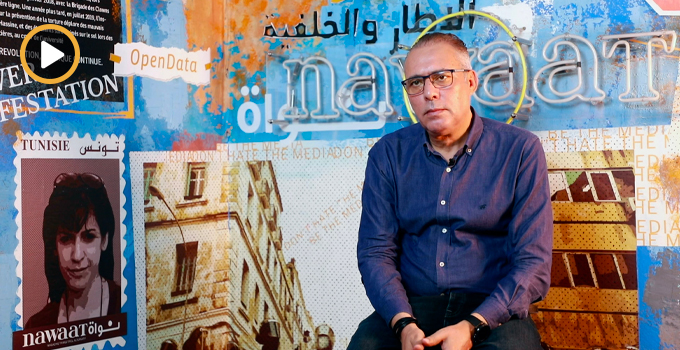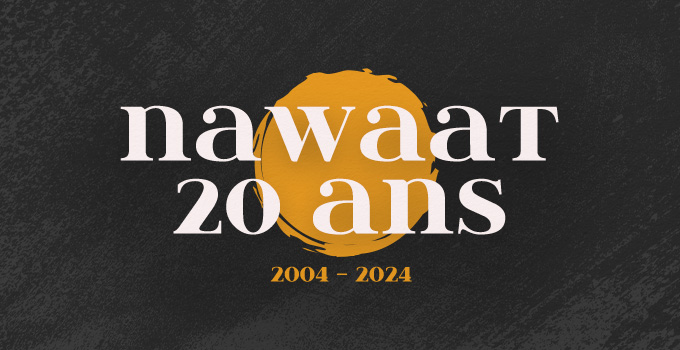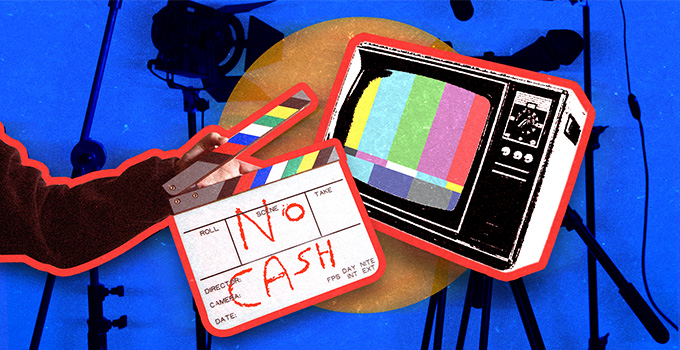
The HAICA considers that « broadcasting without legal authorization is a form of corruption that must be fought by all possible means » and that « the suspicious financing of certain media threatens the democratic process ». On February 18, 2020 the HAICA published a statement describing the « suspicions of corruption » that lead the authority to bring the cases of the three media outlets before the INLUCC. Nessma TV is called out for its fundamental transgression of the law as well as political advertising and hate speech. Zitouna TV is accused of financial opacity, and the radio station Quran Karim for hacking radio waves and for discriminatory discourse.
Zitouna TV and Quran Karim previously saw their equipment confiscated on July 13, 2015, but both media outlets continue broadcast. On January 27, 2017, the HAICA confiscated Quran Karim’s radio transmitter, however, the station recovered its equipment after going to the Court of First Instance in Ben Arous. As for Nessma TV, the HAICA issued an order for the confiscation of its equipment on April 25, 2019. But the station’s legal representative met with HAICA council members and requested that the case be reexamined to pursue regularisation procedures. Ultimately the station went back on the air.

Mayhem at Nessma when its equipment was confiscated on April 25, 2019.
Set on breaking the law
« We trust the INLUCC. It’s their mandate. What’s more, complicated legal procedures pushed us to file a complaint with the authority and not go through the justice system. We have already submitted the case of Hannibal TV to the INLUCC and are waiting for the results. We are certain about the efficiency of this authority », affirms HAICA council member Hichem Snoussi. « We have also solicited the National Authority for Access to Information (INAI) to have the transactions of media outlets suspected of foreign financing. The Central Bank refused to give us the financial documents of concerned media outlets. We are living in a context of financial opacity », he said regretfully.
Snoussi did not hide his misgivings about the judicial treatment of the cases in question. He resents the Administrative Court’s decision allowing the owner of Quran Karim, Said Jaziri, to regain his seat in parliament. « The radio station Quran Karim hacked air waves and uses a pirated transmitter to capture radio waves. It furthermore uses a Tunisie Télécom telephone pole that is located on government-owned land in Zaghouan. Despite all of these violations, the owner of the radio station regained his seat after appealing to the Administrative Court », explains Snoussi. « If this radio station didn’t exist, there certainly wouldn’t be deputies from Errahma lists elected in the places where it is broadcasted », the HAICA member insists.
According to the HAICA’s October 2019 report on media monitoring during the electoral period, the authority issued a 320 dinar fine to Nessma TV for political advertising in favor of presidential candidate Nabil Karoui. Zitouna TV received two fines for 50 thousand dinars for political advertising in favor of Ennahdha and for broadcasting polling results, and Quran Karim was fined 10 thousand dinars for violating election silence.

ISIE and HAICA: technical collaboration, political discord
During the electoral period, independent public authorities collaborated and submitted their reports to the High Independent Elections Authority (ISIE). In a preliminary report, the INLUCC exposed violations relating to breaking the electoral silence and attempts to manipulate electors on polling day. In its report, the HAICA presented a detailed list of violations by the media and abuse of power by political actors who exploit stations to spread propaganda in their favor.
Contacted by Nawaat, the ISIE’s former president and current member Mohamed Tlili Mnasri affirms that the authority « doesn’t sanction the media » but rather the political actors who instrumentalize TV and radio stations during the electoral period. « The ISIE receives observation reports from independent authorities, namely the HAICA and the INLUCC. Each one accomplishes its mission and the ISIE’s council pronounces a judgement. Our intervention is of limited duration. We only intervene during the electoral period. Afterwards, the HAICA reports violations and it’s up them to issue fines and other sanctions », explains Mnasri. « The ISIE sanctioned the candidate Said Jaziri, but the Administrative Court gave him the seat » he recalls.
Hichem Snoussi nevertheless critiques the ISIE’s conduct during electoral periods. « Elections are technically transparent and politically impartial. So how do we explain the regular operation of three illegal media that diffuse political propaganda? » he asks. For Snoussi, the ISIE has attempted by all means possible to avoid confrontations and controversy. « The ISIE turned a deaf ear to the HAICA’s observations during the electoral campaign. Collaboration was very weak and the ISIE’s silence with regards to the instrumentalization of the media is flagrant », says Snoussi. Moreover, he contests how ISIE members are designated. « The organic law relative to the ISIE must be revised and its members elected outside the Assembly of Representatives (ARP). The election must take place through other democratic structures. The direct election of its members subjects the authority to the will of political parties. Authorities must guarantee the democratic process and not limit themselves to conforming with technical standards », Snoussi concludes.





iThere are no comments
Add yours